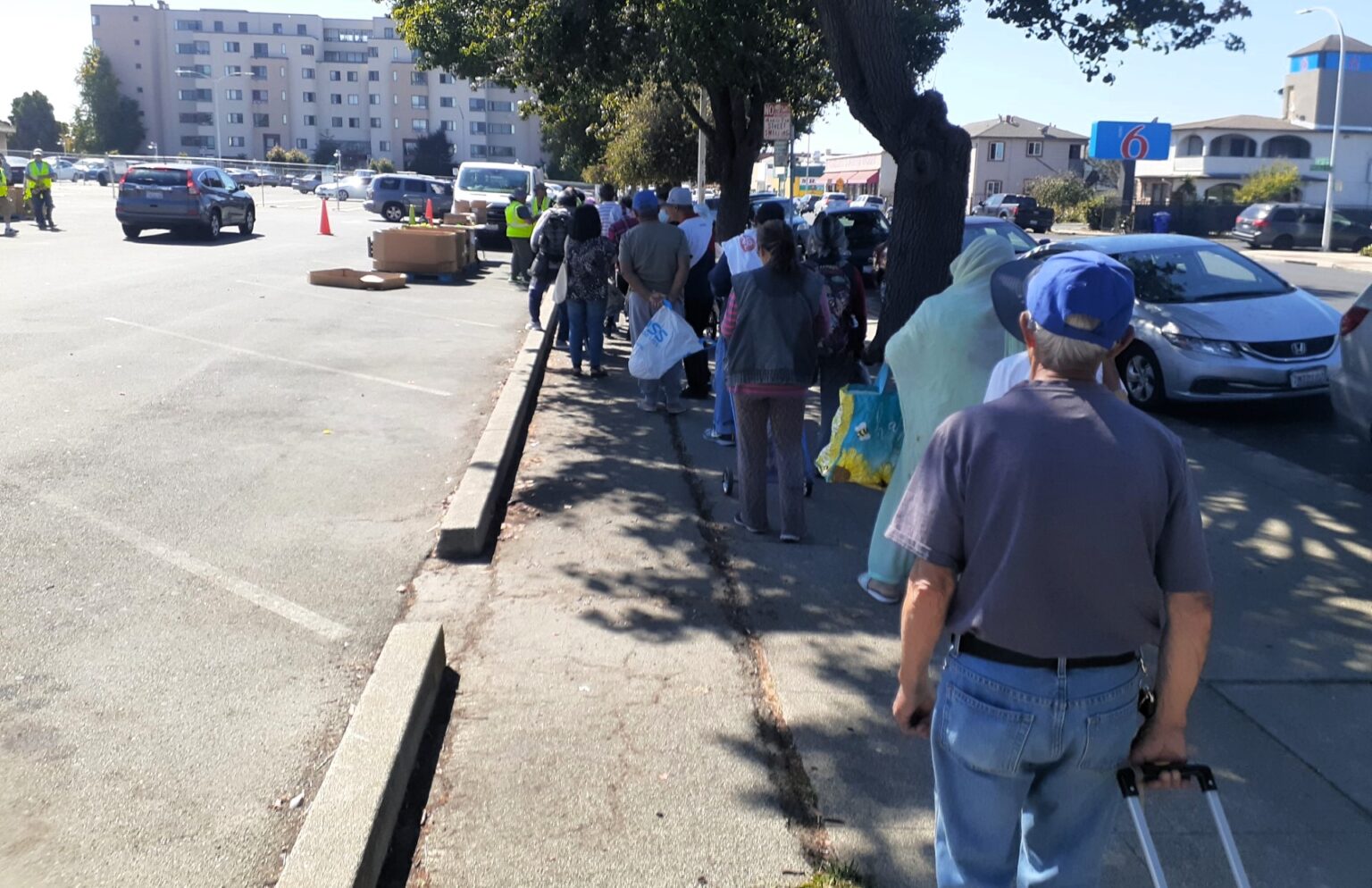Food
Councilman voices opposition to bill extending drinking hours
WAVE NEWSPAPERS — City Councilman Paul Koretz and a group of activists spoke out May 3 against a bill before the state Legislature that would allow Los Angeles and nine other cities to extend alcohol sales to 4 a.m. Koretz and the activists — including members of Alcohol Justice and the California Alcohol Policy Alliance — held a news conference outside Los Angeles City Hall to oppose SB 58.
LOS ANGELES — City Councilman Paul Koretz and a group of activists spoke out May 3 against a bill before the state Legislature that would allow Los Angeles and nine other cities to extend alcohol sales to 4 a.m.
Koretz and the activists — including members of Alcohol Justice and the California Alcohol Policy Alliance — held a news conference outside Los Angeles City Hall to oppose SB 58, the latest of several attempts by Sen. Scott Wiener, D-San Francisco, to pass a law that would allow bars in some cities to stay open later than 2 a.m.
“Once again we’re here fighting a bill that is so persistent that it has earned the name, the Zombie Bill, because we just can’t kill it,” Koretz said. “For the fourth time since 2014, Sen. Scott Wiener has reintroduced the bill that would extend alcohol sales from 2 a.m. to 4 a.m. No matter how many times the bill is beaten down by those of us who understand that defeating this bill is a life or death issue, Sen. Wiener and bar owners who seem willing to trade people’s lives for liquor profits come back again and again.”
Koretz introduced a resolution in March against the bill and held several news conferences in opposition to the idea of earlier bar times when Weiner was trying to pass the previous versions.
“This bill fails to address who will pay for the alcohol-related harms that this bill will cost. This bill will endanger all the lives of the commuters that will be going to work in the early hours,” said Veronica De Lara, co-chair of the California Alcohol Policy Alliance.
The reintroduced Let Our Communities Adjust Late Night Act (LOCAL) would grant Los Angeles, San Francisco, Oakland, Sacramento, Long Beach, West Hollywood, Coachella, Cathedral City, Fresno and Palm Springs the power to extend alcohol sales until as late as 4 a.m.
The bill’s supporters argue that the law banning alcohol sales after 2 a.m. is an outdated requirement written in 1935 and is not in line with Los Angeles being one of the entertainment capitals of the world. They also say it would help businesses while giving the decision-making power to local jurisdictions.
The nonprofit group Alcohol Justice, which has opposed Weiner’s bills, said findings from various domestic and international studies have found that extending bar hours increases alcohol-related harm, including motor vehicle collisions.
The Los Angeles Times Editorial Board endorsed an earlier version of Wiener’s bill in 2017, saying “there’s no firm science behind last-call laws, no data that prove that 2 a.m. is better than 4 a.m. or 6 a.m. or any other time. The laws are more a reflection of a state’s history, its cultural practices and its politics.”
Bay Area
Gettin’ & Stayin’ on the Good Foot in 2024 With Kra Food Flow
In a world where nutrition advice is constantly conflicting and overwhelming, we are often left confused. Trendy diet fads, outdated guidelines like “eat 6 servings of grains,” and misleading labels that read “0 grams trans fat,” but may be up to 0.5 grams of trans fat in reality, make it challenging to navigate the truth. This misinformation is often driven by “food dealers” consumed with making a profit rather than health, which leads to considerable health problems. But there’s a better way. What if you could tap into a more genuine, time-tested source for your diet? An ancient and groundbreaking ancestral approach?

By nanaama raine, MS, RD
Do you know who understands your diet best? It’s not who you think!
In a world where nutrition advice is constantly conflicting and overwhelming, we are often left confused. Trendy diet fads, outdated guidelines like “eat 6 servings of grains,” and misleading labels that read “0 grams trans fat,” but may be up to 0.5 grams of trans fat in reality, make it challenging to navigate the truth. This misinformation is often driven by “food dealers” consumed with making a profit rather than health, which leads to considerable health problems.
But there’s a better way. What if you could tap into a more genuine, time-tested source for your diet? An ancient and groundbreaking ancestral approach?
Meet your ‘kra’.
Kra: Your Inner Nutritionist
Your ‘kra’ acts as your inner health expert, deeply attuned to what your body genuinely needs. It’s a holistic approach, perfectly aligning with who you are and your life’s purpose. Connecting with your kra is deeply personal and a unique experience for each individual that involves learning to recognize and trust signals (communication) your body and mind (and spirit) send you.
It might be an inner voice, vivid mental images, or sensations in different parts of your body, like your belly, feet, hands, forehead, chest or throat. For me, it comes as sensations in my throat, gut, or even as a radiant feeling that flows through me. Pay attention to how certain foods make you feel – energized or sluggish? These consistent signals clearly tell you your kra’s likes/dislikes regarding food. In embracing and synchronizing with your Kra Food Flow, you navigate your nutritional path with clarity, confidence and wisdom.
Kra Food Flow: Ancestral Wisdom
Kra Food Flow is an ancient, transformative way of eating, rooted in African traditions. It’s about following your inner guidance to determine what, when, and how to eat for your unique being. This journey connects you with your ancestral energy, brings peace of mind/clarity in thinking, and guides you to your ‘kra weight’, a state where your body and spirit are at their strongest and most vibrant.
My Journey with Kra Food Flow
Through my extensive study and practice as a dietitian, I’ve discovered that while functional nutrition is a closer approach to personalized diet, it’s your own kra that holds the real key to true harmony. My personal experience during pregnancy, gaining and naturally losing 70 pounds, shows how effective Kra Food Flow is. This approach is life-changing, not just for me, but for many indigenous communities in West Africa and the Bay Area.
Water: Your First Step
Begin your journey with a simple yet powerful step – water. Spiritually, water is a bridge to connect with your kra. It’s also often the first signal, a call for hydration that your body and kra need.
As you drink water, observe how your body and mind respond. Feeling satisfied, hydrated, and clear in your mind are clear indications from your kra. When you practice being mindful and attentive to your body’s hydration needs, you can start understanding and responding to your kra’s subtle cues for food.
Join the Movement
This year, commit to aligning with your Kra Food Flow, starting with the important act of drinking water. Aim for at least half your body weight in ounces of water each day. For instance, if you weigh 170 pounds, that’s about 85 ounces of water per day.
Visit www.flowfolx.com to join the movement and take the pledge. Get yourself a large water bottle and own your flow by sipping water throughout the day easier. Let’s awaken the powerful ancestral energy within you and illuminate our minds, bodies, and spirits.
The Association of Black Psychologists (ABPsi) Bay Area Chapter is committed to providing the Post Newspaper readership with monthly discussions about critical issues in Black Mental Health. The ABPsi-Bay Area Chapter is a healing resource. Readers are welcome to join us at our monthly chapter meetings every 3rd Saturday via Zoom. We can be contacted at bayareaabpsi@gmail.com.
Community
Taxes on Sugar-Sweetened Drinks Drive Decline in Consumption
A new study by researchers at UC Berkeley—including those at UC Berkeley School of Public Health and the Department of Agricultural and Resource Economics—and elsewhere shows that after excise taxes were placed on sugary beverages, purchases declined dramatically and steadily across five American cities.

By Elise Proulx
UC Berkeley News
A new study by researchers at UC Berkeley—including those at UC Berkeley School of Public Health and the Department of Agricultural and Resource Economics—and elsewhere shows that after excise taxes were placed on sugary beverages, purchases declined dramatically and steadily across five American cities.
Although other studies have evaluated the impact of beverage excise taxes—taxes on a per ounce basis–in a single city, this is one of the first that estimates the impact of local excise taxes on purchases and prices of sugar-sweetened beverages across multiple large cities.
The cities included Boulder, Philadelphia, Oakland, Seattle, and San Francisco, all of which implemented taxes between Jan. 1, 2017, and Jan. 1, 2018.
Sugar-sweetened beverages—such as sodas, fruit drinks, sports drinks, energy drinks, and sweetened coffee drinks—are the leading source of added sugars in the American diet, according to the Centers for Disease Control and Prevention.
They are associated with serious negative health outcomes, including type 2 diabetes, obesity, heart disease, kidney disease, non-alcoholic liver disease, gum disease, tooth decay, and other conditions.
Taxes on these types of beverages are promoted as a key policy to hold beverage companies accountable for and reduce the health harms associated with their products, but comprehensive analyses of such taxes have been difficult due to the absence of sufficiently large samples of data and methodological limitations.
“Estimating a more general, more accurate impact of local sugar-sweetened beverage taxes in the U.S. provides greater insight into the overall effectiveness of these taxes,” said study lead author, Scott Kaplan, who is an economics professor at the United States Naval Academy.
Kaplan received his PhD from the UC Berkeley Department of Agricultural and Resource Economics in 2021. “This study may better inform the potential effectiveness of SSB taxes at the state or federal level.”
This new study builds on an earlier study that looked only at data from the city of Oakland.
The new study found that retail prices of sugar-sweetened beverages increased by 33.1% over the two years following tax implementation in each city studied, and that there was a corresponding decrease in purchases of 33% over the same timeframe.
The price increase and purchase decreases appeared immediately after the taxes were implemented and continued to be sustained months later. At the same time, there was no evidence that consumers were traveling to bordering areas without sweetened beverage taxes to make purchases there.
This study’s findings suggest that “these taxes are quite effective in terms of health outcomes and societal cost-savings,” said Kaplan. He hopes this may lead to similar policy action in other locations across the country, and at the state and national levels, as was done with tobacco taxes.
A previous study co-authored by Dr. Kristine A. Madsen of UC Berkeley School of Public Health showed that tax revenue from sugar-sweetened beverage (SSB) excise in seven cities were used to support initiatives to improve community health, develop human and community capital, and advance equity.
Authors include: Scott Kaplan, US Naval Academy; Justin S. White, Boston University School of Public Health, Kristine A. Madsen and Sofia B. Villas-Boas, UC Berkeley; Sanjay Basu, University of Toronto; Dean Schillinger, UCSF
This work was supported by grants from the National Institute on Diabetes and Digestive and Kidney Diseases (R01 DK116852 and 2P30 DK092924), The California Endowment, the UCSF Diabetes Family Fund, and the Centers for Disease Control and Prevention’s National Center for Chronic Disease Prevention and Health Promotion (U18DP006526).
Activism
Long Food Lines in Richmond as Residents Endure Rising Costs
In the last eight months, the Food Bank of Contra Costa and Solano has seen demand for its services increase by about 50,000 people, to roughly 400,000, according to Jeremy Crittenden, spokesperson for the Food Bank of Contra Costa and Solano. The demand is only expected to increase, he said.

By Mike Kinney
Food Bank volunteers greeted long lines of people waiting in their cars and along the sidewalk at Thursday’s bi-monthly food distribution event in the Richmond Civic Center parking lot.
Starting Oct. 12, the Food Bank of Contra Costa and Solano’s regular distribution will no longer provide drive-thru services and will only offer walk-up due to safety reasons.
Richmond Standard spoke with a couple of recipients waiting in line on Sept. 28. They expressed gratitude that the food bank will continue to distribute here on a regular basis, particularly as the costs to live have increased.
“I am grateful that we are able to get food here today,” said Ramon Martinez, who was waiting in line. Martinez described food prices as increasingly outrageous.
Added Jessica Johnson, “The closer we get to the holidays, the prices for food will be skyrocketing again. Having the ability to come here and get food is wonderful and really helps my family get through the next couple of weeks.”
In the last eight months, the Food Bank of Contra Costa and Solano has seen demand for its services increase by about 50,000 people, to roughly 400,000, according to Jeremy Crittenden, spokesperson for the Food Bank of Contra Costa and Solano. The demand is only expected to increase, he said.
“We are aware that we are helping families that are struggling to buy groceries with our pantry distribution sites when we come to their community,” Crittenden said. “And now with a pending shutdown of the federal government, we know there will be more people in need of our food distribution for their families.”
Recipients at distributions can acquire bags of non-perishable foods, fresh produce and proteins. As an example, people received eggs, cheese, ground turkey meat, bags of onions, potatoes and apples, last week. Other items included cans of vegetables and pasta, a package of chicken breast meat and a box of macaroni and cheese.
Distributions will continue to be held in the Richmond Civic Center at 25th Street and Barrett Avenue on the second and fourth Thursdays from noon to 1 p.m. Organizers say it is important to bring one or two bags with handles.
Of course, the Food Bank of Contra Costa and Solano also provides regular distributions at other locations in Richmond and around the County. To view a list of distributions, including times, locations and other details, go to https://www.foodbankccs.org/map-city/richmond/
The Food Bank thrives with help from the community, particularly thanks to financial donations and volunteering.
“Volunteers are the heart of how we are able help and support families and people in need,” Crittenden said. “Volunteering and making a difference in people’s lives is a beautiful feeling.”
To find out ways to donate, go to https://www.foodbankccs.org/give-help/donate/ For volunteer opportunities, go https://volunteer.foodbankccs.org/
-

 Activism4 weeks ago
Activism4 weeks agoOakland Post: Week of March 27 – April 2, 2024
-

 #NNPA BlackPress4 weeks ago
#NNPA BlackPress4 weeks agoCOMMENTARY: D.C. Crime Bill Fails to Address Root Causes of Violence and Incarceration
-

 #NNPA BlackPress4 weeks ago
#NNPA BlackPress4 weeks agoMayor, City Council President React to May 31 Closing of Birmingham-Southern College
-

 #NNPA BlackPress4 weeks ago
#NNPA BlackPress4 weeks agoBeloved Actor and Activist Louis Cameron Gossett Jr. Dies at 87
-

 Community1 week ago
Community1 week agoFinancial Assistance Bill for Descendants of Enslaved Persons to Help Them Purchase, Own, or Maintain a Home
-

 Activism3 weeks ago
Activism3 weeks agoOakland Post: Week of April 3 – 6, 2024
-

 Business1 week ago
Business1 week agoV.P. Kamala Harris: Americans With Criminal Records Will Soon Be Eligible for SBA Loans
-

 Activism2 weeks ago
Activism2 weeks agoOakland Post: Week of April 10 – 16, 2024


















































